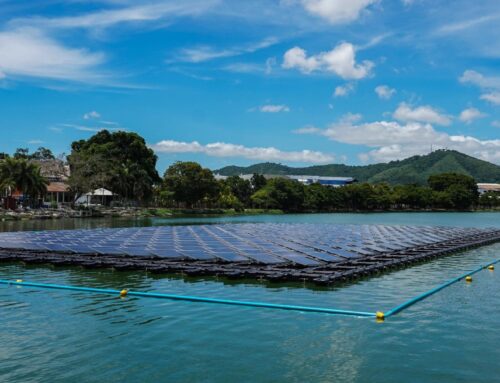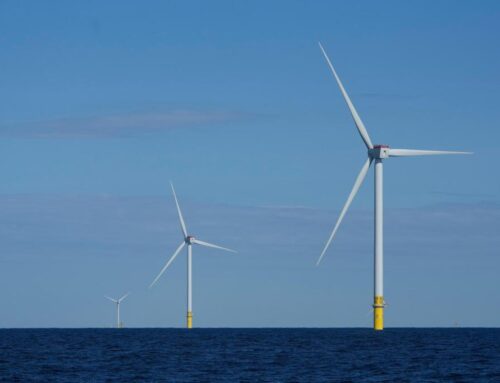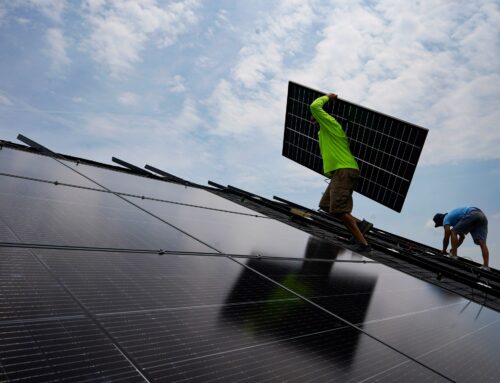2025’s AI Spending Frenzy Continues: Jeff Bezos Will Co-Lead $6.2 Billion Startup
November 17, 2025
Topline
Jeff Bezos will reportedly serve as a co-chief executive of artificial intelligence startup Project Prometheus, which has already received $6.2 billion in funding—the latest in a wave of deals eclipsing the billion-dollar mark surrounding AI this year, as Wall Street anticipates global spending to accelerate in the coming years.
Timeline
Nov. 17Jeff Bezos will serve as co-CEO with former Google X director Vik Bajaj for the AI startup Project Prometheus, which has received $6.2 billion in funding, including some funding from Bezos, the New York Times reported, citing three people familiar with the company.
Nov. 11Anthropic announced plans to spend $50 billion on AI infrastructure, beginning with data centers in Texas and New York, in a project that Anthropic expects to create 800 permanent jobs and more than 2,000 construction roles.
Nov. 3OpenAI and Amazon announced a partnership valued at $38 billion, in which OpenAI will use Amazon’s cloud computing services over the next seven years, with Amazon providing the ChatGPT maker with hundreds of thousands of Nvidia graphics processors to run its AI models.
Oct. 27The Energy Department partnered with AMD to develop two AI-powered supercomputers in a partnership valued at $1 billion, according to AMD, which said the systems would “drive breakthroughs in science, energy and national security.”
The first computer, named “Lux,” is expected to come online within the next six months, while the second computer, “Discovery,” is scheduled to be finished by 2029.
Oct. 23Google announced it would supply up to 1 million of its AI chips to Anthropic in a deal both companies said could be worth tens of billions of dollars.
Oct. 16Oracle executives confirmed a cloud-computing deal with Meta valued at $20 billion, as Oracle will provide Meta with cloud computing capacity for training and deploying AI models.
Oct. 14Oracle’s cloud business said it would deploy tens of thousands of AMD’s newest AI chips starting in 2026, with plans to expand the partnership in 2027 and beyond, though neither Oracle nor AMD disclosed the financial terms of the deal.
Oct. 13OpenAI announced a partnership with Broadcom, with plans for OpenAI to design and deploy its own AI chips and for both firms to jointly build and deploy 10 gigawatts of custom AI accelerators, or hardware used to speed up AI and machine-learning tasks (neither company disclosed financial terms for the deal).
Oct. 6OpenAI and AMD reached a deal that reportedly could have OpenAI acquiring a 10% stake in the chipmaker, whose market cap has risen to nearly $188 billion, as OpenAI announced it would deploy up to six gigawatts of AMD’s graphics processing units over multiple years.
Sept. 25Cloud infrastructure firm CoreWeave announced its deal to provide services to OpenAI expanded by up to $6.5 billion, swelling the value of OpenAI’s partnership with CoreWeave to roughly $22.4 billion after CoreWeave said in March it would provide OpenAI with AI data centers and cloud tech over five years.
Sept. 22OpenAI and Nvidia announced a partnership that includes a $100 billion investment from Nvidia into OpenAI, which said it would use at least 10 gigawatts of Nvidia’s systems for infrastructure used to train AI models.
Sept. 15CoreWeave said in a regulatory filing that Nvidia agreed to buy cloud services valued at roughly $6.3 billion through 2032, requiring Nvidia to buy any excess cloud computing not used by its customers.
Sept. 10OpenAI signed a contract with Oracle to purchase $300 billion in computing power over the next five years, the Wall Street Journal reported, citing people familiar with the matter, as Oracle will provide roughly 4.5 gigawatts of power capacity.
Aug. 22President Donald Trump announced Intel agreed to give the U.S. a 10% stake in the company, valued at roughly $10 billion, making the federal government the third-largest shareholder in the beleaguered chipmaker after Trump earlier called for Intel’s CEO Lip-Bu Tan to resign.
Aug. 10Nvidia and AMD agreed to pay the U.S. government 15% of revenues from chip sales in China in exchange for the chipmakers receiving export licenses, shortly after Trump announced a 100% tariff on imports of semiconductors and chips, according to the Financial Times.
July 14Google announced plans to invest $25 billion in data centers and AI infrastructure over the next two years, noting it would help expand “energy capacity, innovation and opportunity in the AI-driven economy.”
June 30Oracle, in a Securities and Exchange Commission filing, disclosed multiple “large” cloud services agreements, including one valued at $30 billion that was later revealed to be with OpenAI.
May 23Oracle announced it would purchase $40 billion worth of Nvidia’s AI chips to power OpenAI’s data center in Abilene, Texas, which is believed to be the first project underway for Stargate, the Financial Times reported.
Jan. 21Trump announced OpenAI, SoftBank and Oracle would create a new company, “Stargate,” in what Trump called the “largest AI infrastructure project in history,” with plans for the companies to invest up to $500 billion to develop AI infrastructure in the U.S. in the coming years and create 100,000 jobs.
Ai Spending Casts Web Of Circular Deals
Most AI firms have been interconnected for years through a series of investments in one another, beginning with Microsoft’s $1 billion equity deal in OpenAI in July 2019. That partnership grew in January 2023 as Microsoft’s investment swelled to roughly $14 billion, with Microsoft becoming OpenAI’s exclusive provider of cloud computing services. Amazon initially invested up to $4 billion in Anthropic in September 2023 and followed up with another $4 billion investment in November 2024, adding to Google’s $2 billion commitment to Anthropic announced in October 2023 and an additional $1 billion earlier this year. SoftBank was among the lead investors in OpenAI’s $40 billion funding round earlier this year and in August poured $2 billion into Nvidia, which invested $5 billion and $100 billion into Intel and OpenAI, respectively, in a pair of deals the following month. Several economists have warned a web of investments between AI firms resembles similar deals reached during the dot-com bubble in the late 1990s, claiming the flow of funding between firms could be overinflating the market. CoreWeave’s market capitalization has surged to nearly $67 billion since its initial public offering in March, as its shares have spiked 221% over the last six months while the firm has been embedded in multiple partnerships. Other market researchers have warned that many AI investments have yet to pan out: A study from the Massachusetts Institute of Technology found that 95% of the 300 surveyed AI developments have not turned a profit, despite companies spending a combined $400 billion.
Search
RECENT PRESS RELEASES
Related Post




